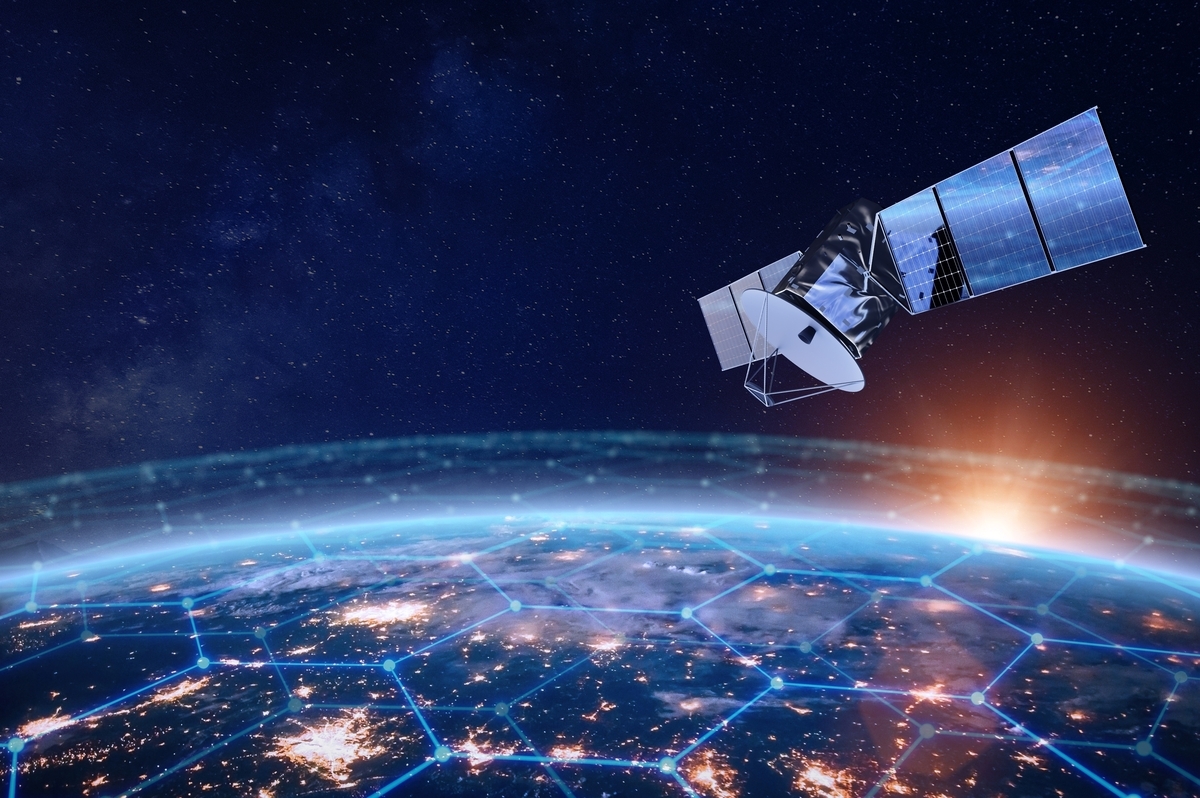POLICY
Forging Ahead in Space: A Strategic Imperative for Japan and South Korea’s Collective National Security
December 11, 2024
In an era defined by rapid technological progress, the space domain has become a critical frontier for national security. Recent conflicts, such as those in Ukraine and the Middle East, underscore how advanced technologies can reshape warfare dynamics. In Ukraine, space-based electronic warfare has disrupted communications and operations, while in the Middle East, space-derived intelligence has fueled chaos, enabling tactical advantages that threaten regional stability.
These developments highlight the escalating threats posed by actors leveraging advanced space capabilities. China, for instance, has declared space a new warfighting domain and demonstrated its ability to destroy satellites using anti-satellite weapons. Beyond this, China is developing technologies like robotic arms for satellite orbital placement manipulation, nesting techniques to conceal satellites, and launching an unprecedented number of intelligence, surveillance, and reconnaissance (ISR)-capable satellites with undisclosed payloads. Russia, too, recognizes space as a critical battleground, employing jamming and spoofing technologies while allegedly developing nuclear anti-satellite weapons. The implications of these advancements for Japan and South Korea—and the broader Indo-Pacific—are profound, raising urgent questions about how to counter such threats.
North Korea’s evolving relationship with Russia compounds these risks. Concerns over technology transfers, potentially in exchange for munitions and soldiers, present a direct threat to Japan and South Korea. North Korea’s advancing missile programs, including intercontinental ballistic missiles (ICBMs) and hard-to-detect short-range missiles, further exacerbate the security challenge. If adversaries were to effectively employ space-based capabilities, Japan and South Korea might themselves unable to see, unable to hear, and unable to communicate during a crisis in which timely responses are a matter of life and death.
In recent years, Japan and South Korea have made significant strides in improving their bilateral relationship. Initiatives inspired by the Spirit of Camp David, driven by U.S. President Joe Biden, former Japanese Prime Minister Fumio Kishida, and South Korean President Yoon Suk-yeol, have fostered greater collaboration. These include joint multi-domain exercises, direct missile data-sharing capabilities enabled by the U.S. Space-Based Infrared System (SBIRS), and a multi-year trilateral exercise plan to counter North Korean threats. Such efforts mark a shift from historical tensions to a forward-looking partnership.
At the heart of this strengthening relationship lies the space domain - a vital pillar of national and regional security. By leveraging their technological advancements and ambitions in space, Japan and South Korea can bolster their collective security posture.
Japan’s established presence in space, exemplified by Japanese Aerospace Exploration Agency (JAXA)-led initiatives and its Space Operations Group (SOG), includes contributions like the Smart Lander for Investigating Moon (SLIM) and commitments to the Artemis Accords. South Korea, meanwhile, is rapidly emerging as a key player, with its newly formed Korean Aerospace Space Agency (KASA), indigenous military reconnaissance satellites, and participation in the Artemis Accords.
While space domain cooperation has been limited due to concerns over national security and the protection of proprietary technology, shared threats and mutual technological prowess provide incentives for, and advantages to, a collaborative framework. Here are three strategic pathways to enhance the orbital defense of Japan, South Korea, and the broader Indo-Pacific:
These developments highlight the escalating threats posed by actors leveraging advanced space capabilities. China, for instance, has declared space a new warfighting domain and demonstrated its ability to destroy satellites using anti-satellite weapons. Beyond this, China is developing technologies like robotic arms for satellite orbital placement manipulation, nesting techniques to conceal satellites, and launching an unprecedented number of intelligence, surveillance, and reconnaissance (ISR)-capable satellites with undisclosed payloads. Russia, too, recognizes space as a critical battleground, employing jamming and spoofing technologies while allegedly developing nuclear anti-satellite weapons. The implications of these advancements for Japan and South Korea—and the broader Indo-Pacific—are profound, raising urgent questions about how to counter such threats.
North Korea’s evolving relationship with Russia compounds these risks. Concerns over technology transfers, potentially in exchange for munitions and soldiers, present a direct threat to Japan and South Korea. North Korea’s advancing missile programs, including intercontinental ballistic missiles (ICBMs) and hard-to-detect short-range missiles, further exacerbate the security challenge. If adversaries were to effectively employ space-based capabilities, Japan and South Korea might themselves unable to see, unable to hear, and unable to communicate during a crisis in which timely responses are a matter of life and death.
In recent years, Japan and South Korea have made significant strides in improving their bilateral relationship. Initiatives inspired by the Spirit of Camp David, driven by U.S. President Joe Biden, former Japanese Prime Minister Fumio Kishida, and South Korean President Yoon Suk-yeol, have fostered greater collaboration. These include joint multi-domain exercises, direct missile data-sharing capabilities enabled by the U.S. Space-Based Infrared System (SBIRS), and a multi-year trilateral exercise plan to counter North Korean threats. Such efforts mark a shift from historical tensions to a forward-looking partnership.
At the heart of this strengthening relationship lies the space domain - a vital pillar of national and regional security. By leveraging their technological advancements and ambitions in space, Japan and South Korea can bolster their collective security posture.
Japan’s established presence in space, exemplified by Japanese Aerospace Exploration Agency (JAXA)-led initiatives and its Space Operations Group (SOG), includes contributions like the Smart Lander for Investigating Moon (SLIM) and commitments to the Artemis Accords. South Korea, meanwhile, is rapidly emerging as a key player, with its newly formed Korean Aerospace Space Agency (KASA), indigenous military reconnaissance satellites, and participation in the Artemis Accords.
While space domain cooperation has been limited due to concerns over national security and the protection of proprietary technology, shared threats and mutual technological prowess provide incentives for, and advantages to, a collaborative framework. Here are three strategic pathways to enhance the orbital defense of Japan, South Korea, and the broader Indo-Pacific:

1. Harnessing AI for Space Security and Innovation
Collaboration on AI technology is essential to managing the increasing volume of space-based reconnaissance data. AI can enable real-time threat detection, identification, and response, particularly as missile launches in the region increase.Japan and South Korea are well-positioned for this partnership. Japan excels in robotics and machine learning, while South Korea has rapidly advanced AI with leadership in edge computing and through tech giants like Samsung and LG. Joint efforts could focus on:
Data Analysis: Faster threat detection and response.
Autonomous Navigation: Enabling real-time spacecraft adjustments.
Predictive Maintenance: Preventing system failures before they occur.
This collaboration promises to enhance regional stability and unlock new frontiers in space innovation.
2. Advancing PNT Technology for Electromagnetic Warfare
Electromagnetic warfare tactics like jamming, spoofing, and cyberattacks pose significant threats to space-based systems. As adversaries innovate, Japan and South Korea must secure access to reliable positioning, navigation, and timing (PNT) technologies.Japan’s Quasi-Zenith Satellite System (QZSS) and South Korea’s developing Korea Positioning System (KPS) present opportunities for collaboration. Joint initiatives could include:
Integrated PNT Systems: Strengthening GPS signals regionally.
Alternative PNT Solutions: Mitigating vulnerabilities in traditional Global Navigation Satellite Systems.
Joint Training: Building resilience through simulations and drills.
Such efforts would enhance Japan and Korea’s defense capabilities by increasing system redundancy and providing distributed security, thereby deterring adversaries by limiting space vulnerabilities.
3. Championing Norm-Setting for Peaceful and Sustainable Space Use
As space activities accelerate, the need for clear regulations grows. Concerns over orbital debris, militarization, and the lack of effective enforcement mechanisms underscore the urgency of updating international norms.Japan and South Korea, respected players in the global space community, are well-suited to lead these efforts. Joint advocacy could focus on:
Debris Mitigation: Developing and promoting innovative control measures.
Regulatory Frameworks: Establishing rules for satellite proximity and collision avoidance.
Advocacy of Peaceful Space Use: Supporting inclusive codes of conduct for space exploration.
By championing these initiatives, Japan and South Korea can promote a stable, sustainable space environment while reinforcing the rules-based order.

Conclusion
Despite historical challenges, the urgency of regional threats has catalyzed Japan and South Korea’s growing cooperation. By prioritizing space domain collaboration in AI, PNT technologies, and norm-setting, they can safeguard their national security and contribute to global stability. Together, these nations have the potential to lead the Indo-Pacific toward a resilient, peaceful, and technologically advanced future—ensuring they remain prepared in a rapidly evolving space landscape.For a longer piece on this topic, visit:
https://project2049.net/2024/11/22/forging-ahead-in-space-a-strategic-imperative-for-japan-and-south-koreas-collective-national-security/


